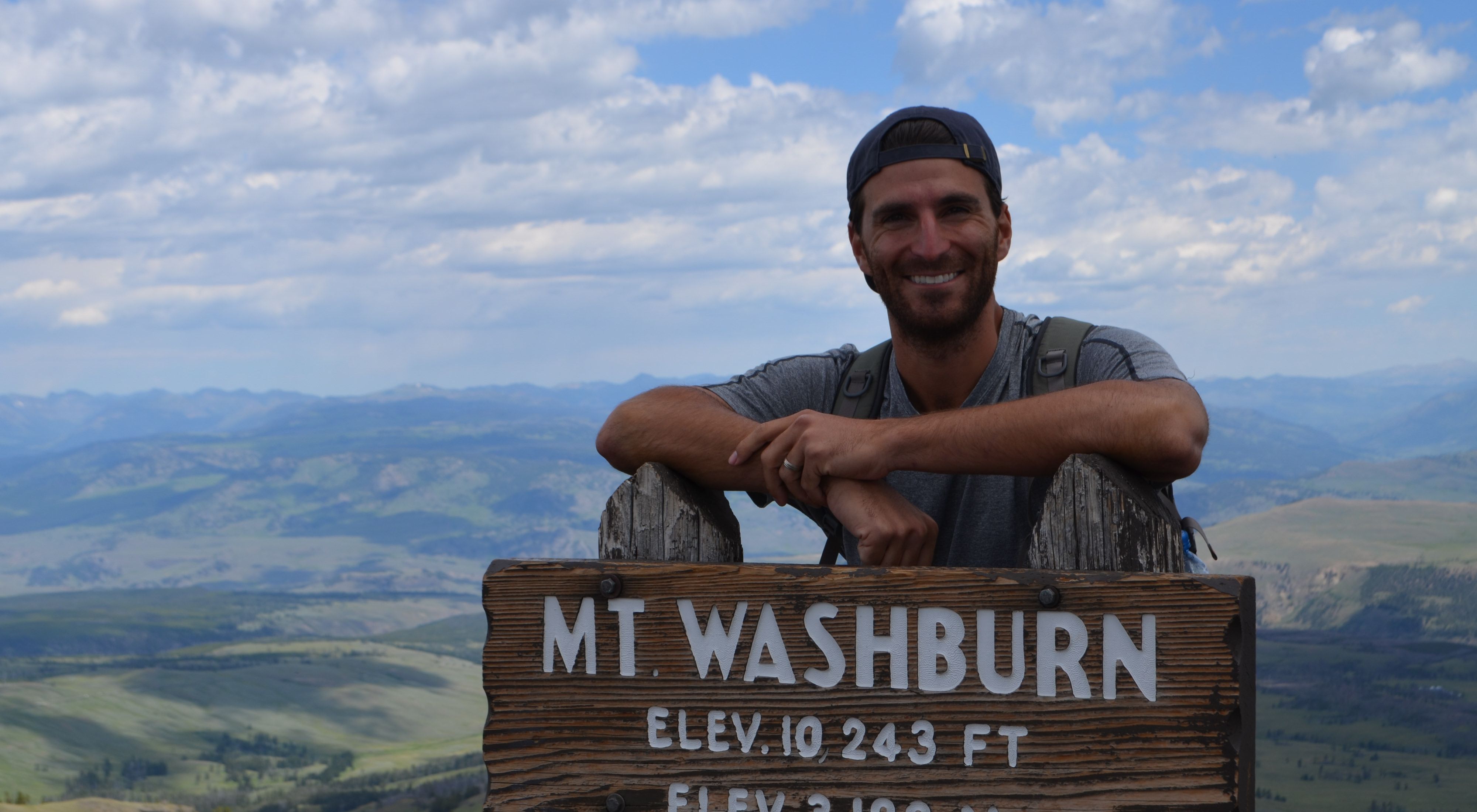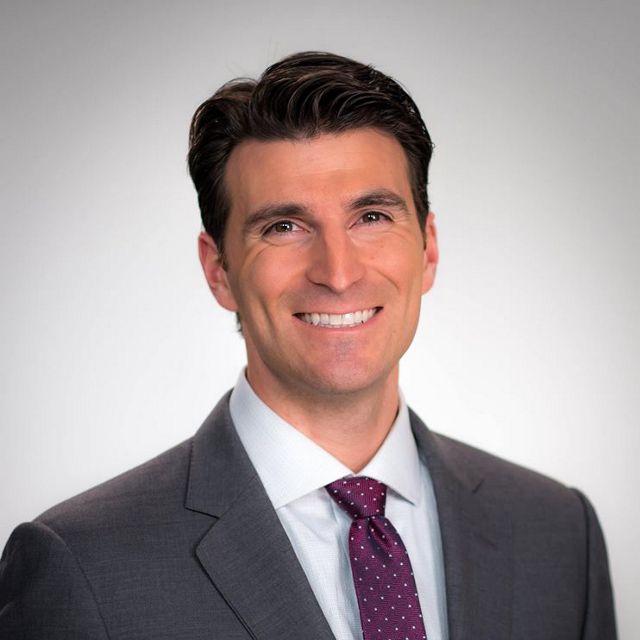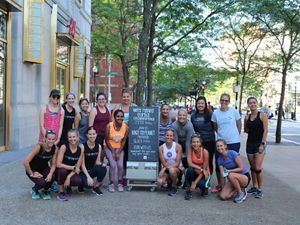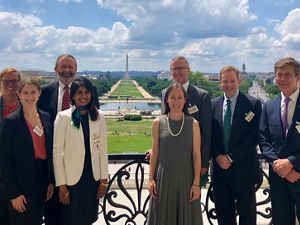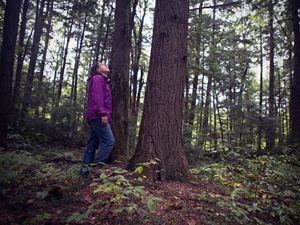Behind the Scenes on Weather and Climate with Eric Fisher
WBZ TV's chief meteorologist talks weather, the outdoors and being a voice on climate change
What led you to a career in meteorology?
Much like many other meteorologists, it started early. I don’t even really know why. I grew up outside and had an interest in the natural world. I recorded weather observations in a notebook, begged my mom for trips to the World of Science store at the mall, watched the Weather Channel constantly and drew storms on my book covers. I went into school thinking I would be a meteorologist someday and even have yearbooks from 6th grade with notes from friends saying, “Good luck and can’t wait to see you on TV!” I’m very fortunate it all worked out.
Is there something about the field you think would surprise a lot of people?
It’s a strange thing, but I often find that people think meteorologists on TV are actors. As in, we don’t know anything about weather and just go on-air with recorded lines and regurgitate forecasts from ‘actual meteorologists’!
Long ago, this may have been true, but that is much rarer these days—especially in Boston, where the weather is notoriously difficult to forecast. I have a degree in Atmospheric Science like many of my peers, and we all come up with our own forecasts. This is also why you may see differences across each outlet's predictions. A forecast is an opinion on how the future will unfold and all our opinions can be a bit different!
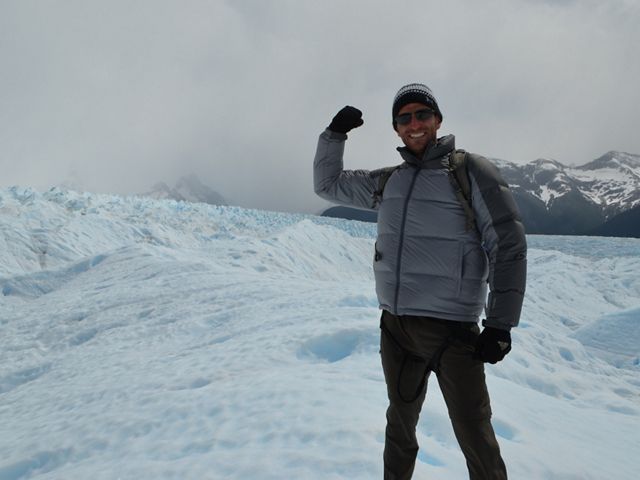
In 2019, on Cape Cod, you spoke about climate change at the OneCape summit and also with shellfishermen at the Aquacultural Research Corporation. Why?
Talking about climate change can be a little tricky for a meteorologist, and the analogy I usually use is this: If you’re fixing up your home, you will probably look up a general contractor. They can probably do just about anything for the project. But if there’s something specific where a specialist would do a better job, the contractor will likely call him or her to do that piece because they have expertise in that specific trade. A meteorologist spends all their time studying weather and certainly keeps an eye on climate trends and data. We can discuss all the above pretty easily. But we’re not actual climatologists, who are specialists.
If you really want to get into the nitty gritty of climate change, trends, radiative balance and computer modeling… you’re going to want to strike up a conversation with a climatologist. That being said, meteorologists are uniquely positioned to talk about the subject since we’re easy to reach and already have built in relationships with our viewers. We’re also comfortable presenting and talking in public, which is not always something scientists look forward to doing.
I think it’s a good opportunity for me to try to present the latest research and information to those seeking answers. If there’s something I don’t feel comfortable answering, then I try to find them a person who can provide a quality response.
What’s the relationship between weather and climate?
The go-to metaphor here is that climate is your personality, weather is your mood. A personality type is our default state. Every now and then all of us can have bad days and good days, angry ones and happy ones. That’s weather. The ups and downs of daily life that sometimes stray from our core base state.
I find that many get confused between weather and climate. Just because it’s hot today isn’t an example of runaway climate change, and just because we had a big snowstorm doesn’t mean the world isn’t getting warmer. The daily, weekly and monthly swings can all differ from the longterm story.
For a local example, Boston had an exceptionally cold February in 2015. It was the 2nd coldest month on record here. And that absolutely has an impact. But when we widen out, we see that in the 2010s there were 35 months that notched ‘Top 10 Warmest’ status and only one that notched ‘Top 10 Coldest’—that month of February in 2015. Clearly, the odds are not in favor of cold times anymore. That is climate.
Quote: Eric Fisher
Anyone who spends time outdoors has probably noted biological markers of climate change: different animals showing up, changes in the growing season, increasing erosion and flooding, or ice-in and out dates for lakes and ponds.
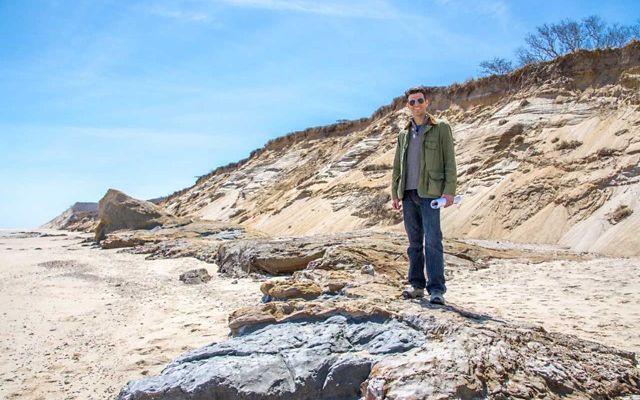
In late December you did a great, in-depth story based in part on data showing the 2010s were the warmest decade on record for the Boston area. You noted biological markers of climate change and struck a hopeful note about finding solutions. What reactions did you get?
I know that many people out there are skeptical of data. There’s inherent imperfection in observations, and I don’t blame them. This is why I find discussing biological markers the best way to go. If you don’t like my graphs and charts, well then look outside! Anyone who spends a lot of time outdoors has probably noted the shifts over time. Whether it be different animals showing up, changes in the growing season, increasing erosion and flooding, oceanic species drifting north, or ice-in/ice-out dates for lakes and ponds. These are undeniable changes.
In terms of reaction, unfortunately people are often set in their groups. I can’t say I’ve ever convinced anyone who sends me nasty messages about climate change that it’s real.
The good news is that there are many people out there who want us to talk more about climate. We’ve found in recent years that when we produce a piece on climate, the reaction is more positive than negative and that viewers want to see more! That’s an excellent development. I’m hoping to be able to do more going forward.
What do you do when you’re away from the job?
Away from work… what’s that?!
The number one thing I like to do is just get outside. Making the most of our beautiful region and visiting farms, trails, beaches and mountains. Even though we live in the city, I make sure to get the family out into the country, too, so our son has a good appreciation for the outdoors. Fortunately, Boston also does a great job of providing all sorts of parks, playgrounds, trails and water access.
If readers take away one thing from this conversation, what would you want that to be?
See the shades of gray. We live in a hyperbolic world where everything is the worst or best, and it’s always us against them. That’s just not the way it is, and that applies to weather and climate too.
Don’t shut out an idea because you don’t like it or it doesn’t jibe with your belief system, etc. All the best science and research that we have say the globe is warming up, and that humans are the main driver of that. I used to be pretty skeptical. After doing my homework and working in weather over the years, it became clear that I was wrong. Once we get everyone on the same page, hopefully we can come together for some of the best solutions and adaptations to move forward with.
